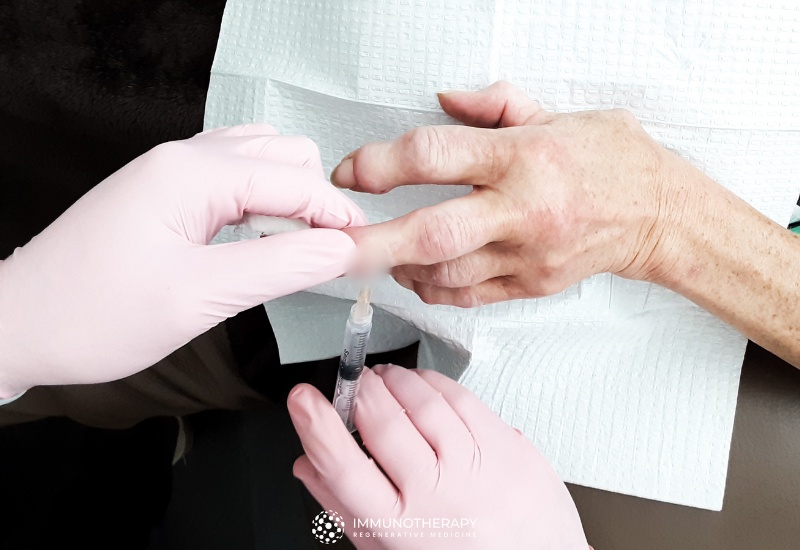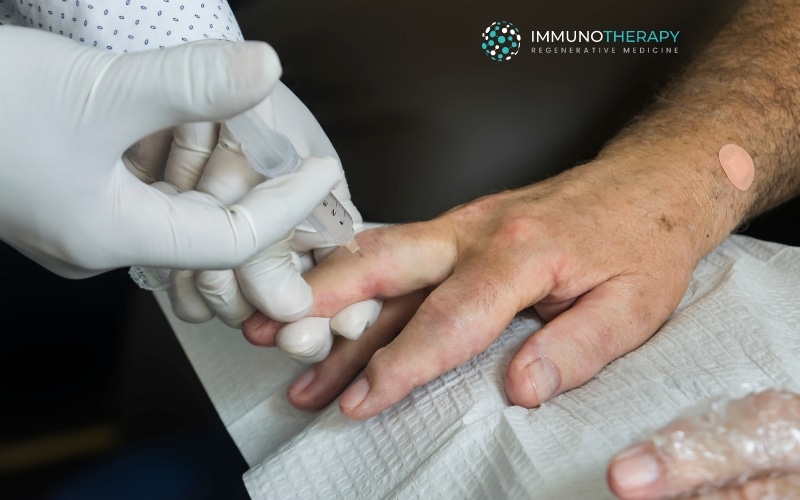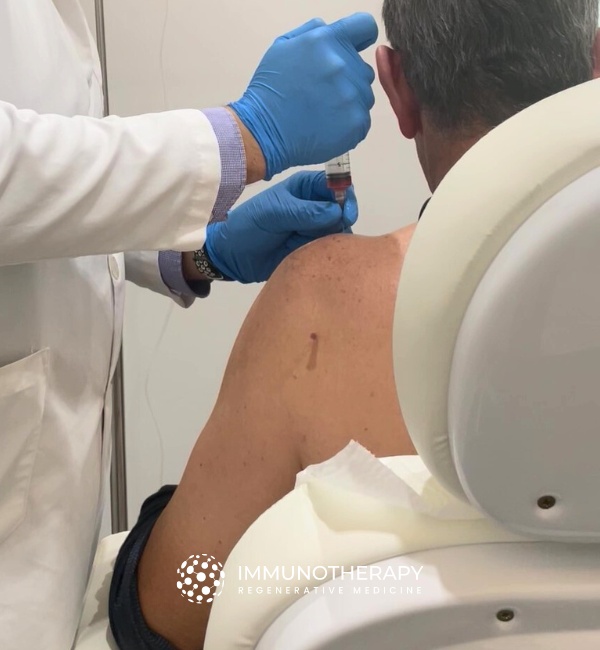Stem Cell Therapy for Musculoskeletal Conditions: A Comprehensive Guide
Introduction
Musculoskeletal disorders (MSDs) encompass a wide range of conditions affecting muscles, bones, tendons, ligaments, and nerves. These conditions can result from acute injuries, chronic diseases, or degenerative changes due to aging. Traditional treatments often include medications, physical therapy, and surgery, which may come with significant side effects and limitations. Stem cell therapy, particularly using mesenchymal stem cells (MSCs), has emerged as a promising alternative, offering regenerative potential and pain relief for various musculoskeletal conditions. This comprehensive guide explores the applications, benefits, and safety of stem cell therapy for musculoskeletal disorders.
Understanding Musculoskeletal Disorders
Musculoskeletal disorders are a group of conditions that affect the musculoskeletal system. They can cause pain, limit mobility, and impact the quality of life. Understanding the different types of these disorders is crucial for appreciating how stem cell therapy can help.
Types of Musculoskeletal Disorders
Traumatic Injuries
Traumatic injuries include fractures, sprains, and dislocations. These injuries often result from accidents, falls, or direct impacts and can lead to significant pain and mobility issues.
Degenerative Diseases
Degenerative diseases like osteoarthritis and spondylosis result from the gradual wear and tear of joints and tissues over time. These conditions are common in older adults and can severely impact daily activities.
Inflammatory Diseases
Inflammatory diseases such as rheumatoid arthritis and lupus erythematosus are autoimmune conditions where the body’s immune system attacks its tissues, causing pain and inflammation.
Soft Tissue Disorders
Soft tissue disorders include tendinitis and bursitis, which affect tendons and bursae, respectively. These conditions are often caused by repetitive movements or overuse.
Metabolic Conditions
Metabolic conditions like osteoporosis and osteomalacia result from imbalances in bone formation and resorption, leading to weakened bones and an increased risk of fractures.
Hereditary Disorders
Hereditary disorders such as muscular dystrophies and osteogenesis imperfecta are genetic conditions that affect the structure and function of muscles and bones.
Common Symptoms of Musculoskeletal Disorders
Symptoms of musculoskeletal disorders vary depending on the specific condition but commonly include persistent or intermittent pain, stiffness, swelling, inflammation, muscle weakness, and difficulty performing daily activities. These symptoms can significantly affect a person’s quality of life, making effective treatment essential.
Causes and Risk Factors of Musculoskeletal Disorders
Musculoskeletal disorders can develop due to various reasons, including acute injuries from accidents, repetitive strain from overuse, degenerative changes from aging, genetic predispositions, and chronic diseases such as autoimmune and metabolic disorders. Understanding these causes can help in developing preventive and therapeutic strategies.

Introduction to Stem Cell Therapy
Stem cell therapy has emerged as a revolutionary approach to treating various medical conditions, including musculoskeletal disorders. Stem cells, particularly mesenchymal stem cells (MSCs), have the unique ability to differentiate into various cell types and promote tissue regeneration.
What are Mesenchymal Stem Cells?
Mesenchymal stem cells (MSCs) are multipotent cells found in various tissues, including bone marrow, fat, and umbilical cord tissue. They can differentiate into osteocytes (bone cells), chondrocytes (cartilage cells), and myocytes (muscle cells), making them highly valuable in treating musculoskeletal disorders.
How Mesenchymal Stem Cells Work
Regeneration of Tissues.
MSCs can differentiate into specific cells needed for repairing damaged tissues, promoting healing and regeneration.
Immunomodulation.
MSCs possess anti-inflammatory properties, helping to reduce chronic inflammation and pain associated with musculoskeletal disorders.
Secretion of Growth Factors.
MSCs secrete growth factors that promote tissue repair and angiogenesis (formation of new blood vessels), enhancing the healing process.
In our laboratory, mesenchymal stem cells (MSCs) are isolated from various tissues and culltured under strict good manufacturing practices (GMP) standards. The MSCs used in cellular therapies must meet standards for morphology, viability, multipotency, marker expression and are transplanted by our experts.
Applications of Stem Cell Therapy in Musculoskeletal Conditions
Stem Cell Therapy for Osteoarthritis
Osteoarthritis is a degenerative joint disease that causes cartilage breakdown. MSCs can help regenerate cartilage and reduce inflammation, offering relief from pain and improving joint function.
Stem Cell Therapy for Osteoporosis
Osteoporosis weakens bones, increasing fracture risk. MSCs can promote bone formation and strengthen bones, reducing the risk of fractures.
Stem Cell Therapy for Fibromyalgia
Fibromyalgia is characterized by widespread pain and fatigue. MSCs’ anti-inflammatory properties can help alleviate pain and improve the quality of life for those with fibromyalgia.
Stem Cell Treatment for Rheumatoid Arthritis (RA)
Stem cell therapy for Rheumatoid Arthritis (RA) offers a new dimension in treating this autoimmune condition. Through its anti-inflammatory effects and the ability to modulate the immune system, stem cells can significantly reduce the symptoms of RA, offering an alternative to treatments that compromise the patient’s immune system. More information.


Stem Cell Therapy for Hip, Knee, Shoulders, Ankle, Neck Pain, Elbow Pain
Stem cell therapy offers significant relief for joint pain in areas like the hips, knees, shoulders, ankles, neck, and elbows, which often suffer from degenerative conditions or injuries. By using mesenchymal stem cells (MSCs), this treatment can regenerate damaged cartilage, reduce inflammation, and alleviate pain. For example, knee osteoarthritis patients may see improved joint function and reduced discomfort after MSCs help repair worn cartilage. This minimally invasive approach provides a valuable alternative to surgery, enhancing mobility and quality of life with fewer complications.

Stem Cell Therapy for Back Pain (Herniated Discs, Degenerative Disc Disease, Facet Disease, Stenosis)
Stem cell therapy is transforming the treatment of back pain caused by conditions like herniated discs, degenerative disc disease, facet disease, and spinal stenosis. MSCs help regenerate spinal tissue, decrease inflammation, and alleviate pain by restoring spinal disc integrity and reducing nerve compression. This therapy not only offers pain relief but also improves function in patients with chronic back issues, presenting a non-surgical option that tackles the root causes of pain and leads to sustained improvement.
Stem Cell Therapy for Sciatic Injury
Sciatic nerve pain can be debilitating. MSCs can help alleviate this pain by promoting the regeneration of nerve tissue and reducing inflammation around the sciatic nerve. This approach can lead to significant improvements in mobility and pain relief for patients suffering from sciatica.
Benefits of Stem Cell Therapy for Musculoskeletal Conditions
Stem cell therapy offers several benefits over traditional treatments for musculoskeletal disorders:
- Reduced Reliance on Medication: Patients may experience significant pain relief, reducing the need for long-term medication use and its associated side effects.
- Minimally Invasive: Unlike surgery, stem cell therapy is a minimally invasive procedure, which reduces the risk of complications and shortens recovery time.
- Natural Healing: By promoting the body’s natural healing processes, stem cell therapy can lead to more durable and comprehensive healing compared to symptomatic treatments.
- Improved Quality of Life: By effectively managing pain and restoring function, stem cell therapy can greatly improve the quality of life for patients with chronic conditions.
Safety and Efficacy of Stem Cell Therapy
Stem cell therapy is generally considered safe, with most patients experiencing minimal side effects. However, as with any medical treatment, there are potential risks involved, including infection at the injection site and inflammation. The efficacy of stem cell therapy can vary based on the patient’s condition and the specific protocol used. It is crucial for patients to choose accredited clinics with experienced medical professionals to minimize risks and maximize the benefits of the treatment.
Patient Experiences and Testimonials
Choosing the Right Clinic for Stem Cell Therapy
When selecting a clinic for stem cell therapy, consider the following factors:
Accreditation and Credentials
Ensure the clinic is accredited and that the medical staff are well-trained and experienced in stem cell therapy.
Transparency of Information
The clinic should provide clear, comprehensive information about the treatment options, potential risks, and expected outcomes.
Patient Reviews and Outcomes
Look for clinics with positive patient testimonials and documented outcomes to gauge the effectiveness of their treatments.
Follow-up Care
Choose a clinic that offers thorough follow-up care to monitor recovery and address any complications post-treatment.
Frequently Asked Questions Stem cell therapy for musculoskeletal conditions
If you have any questions or need to consult something, please call +1 800 218-2858.
How long does it take to see results from stem cell therapy?
The time to see results from stem cell therapy can vary based on the specific condition and the individual patient. Generally, patients begin to notice improvements in pain and function within 4 to 6 weeks after the treatment. Full results can take several months as the regenerative process continues.
Is Stem Cell Therapy Painful?
The stem cell therapy procedure is minimally invasive and is typically performed under local anesthesia. Most patients experience only mild discomfort during and after the procedure, similar to what one might feel after a routine injection. Post-procedure soreness can be managed with over-the-counter pain medications.
Are There Any Age Restrictions For Receiving Stem Cell Therapy?
There are generally no strict age restrictions for receiving stem cell therapy. However, the suitability of the treatment depends on the individual patient’s overall health and specific medical condition. It is best to consult with our medical professionals to determine if stem cell therapy is right for you.
How Many Sessions Are Typically Needed For Stem Cell Therapy?
The number of sessions needed can vary based on the severity of the condition and the patient’s response to the initial treatment. Many patients achieve significant improvement with just one session. However, some may require additional treatments to optimize and maintain results.
What Is The Cost Of Stem Cell Therapy?
The cost of stem cell therapy can vary depending on the specific treatment plan, the condition being treated, and other factors. It is best to contact our clinic directly for detailed pricing and to discuss your individual needs.
Conclusion
Stem cell therapy represents a significant advancement in the treatment of musculoskeletal conditions, offering a promising alternative to traditional methods. With its potential to reduce pain, enhance recovery, and improve overall quality of life, stem cell therapy is becoming a preferred choice for patients seeking effective and minimally invasive treatment options. As research continues to evolve, the scope and efficacy of stem cell therapies are expected to expand, providing hope and improved outcomes for patients with musculoskeletal disorders.
At Immunotherapy Regenerative Medicine, we are dedicated to providing our patients with the latest in stem cell therapy, combining scientific innovation with personalized care. If you are suffering from any musculoskeletal conditions and are seeking a treatment that offers relief and a path to recovery, we encourage you to reach out to us. Schedule a consultation today to discuss how stem cell therapy can help you reclaim your health and improve your quality of life. Don’t let pain hold you back—discover the healing possibilities with us and take the first step towards a more active and enjoyable life.
